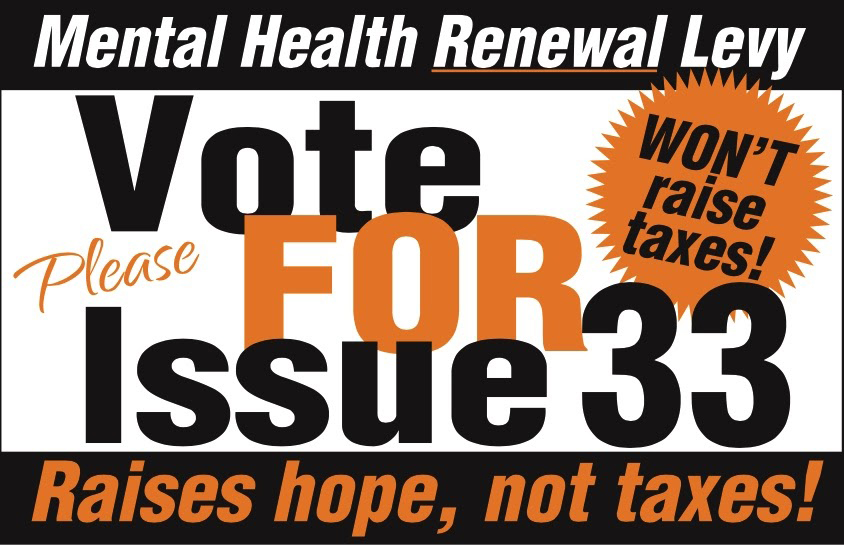Mental Health and Addiction Recovery Services Board levy renewal on ballot
Issue 33 on Tuesday’s ballot will renew the existing Butler County Mental Health Levy for five years.
October 30, 2020
Butler County voters will consider whether to renew the $1-mill mental health and addiction services levy on the Nov. 3 ballot.
The levy generates $7.5 million a year for the Butler County Mental Health and Addiction Recovery Services (MHARS) board. The MHARS board provides funding, strategic planning, quality assurance, and needs assessments for outside service providers.
Like the 1.3-mill elderly services levy, which will also be on the ballot, the MHARS levy is a five-year renewal and will not raise taxes. If the MHARS levy doesn’t get enough votes, the board would have one more year get the levy passed in a special election.
Scott Rasmus, executive director of the MHARS Board, said that one in every 10 Butler County residents were impacted in some way by their services last year and that the opioid epidemic had increased those numbers.
The MHARS Board oversees the UPLIFT program, an in-home counseling program for clients of the Butler County Elderly Services Program who may be experiencing mental health-related issues.
Most uplift counseling sessions are currently being conducted virtually to protect seniors from the virus, however, teleconference treatments have proven to be effective.
Rasmus agrees that virtual treatment options work and are convenient, but for first time consultations, service providers may have a more difficult time accurately assessing clients.
According to the 2019 MHARS Annual Report, about 53% of the board’s funds are derived from the levy.
The majority of MHARS expenditures are allocated toward coordination and support services, crisis services, and counseling and therapy services. Out of the 39,262 people that received services last fiscal year, 36% of them were diagnosed with substance use disorders at admission.
“The pandemic has definitely caused an increase in anxiety, depression, and stress to residents in Butler County,” Rasmus said. “These levy funds are needed, because they can be quickly allocated to respond to (Butler County residents’) needs and also to backfill services that have been started with federal funds.”
According to the Butler County Health Department, it had 79 emergency department visits related to drug overdoses in the past 30 days.
Martin Schneider, an administrator at the Butler County Coroner’s Office, said there have been 152 known or suspected overdose deaths in Butler County this year.
Butler County had 159 overdose deaths in 2019 and Schneider said he fully expects the county to pass that number this year. However, Schneider said he is unsure whether or not the pandemic has had a direct impact on overdose death rates.
“The month with the highest total number of overdose deaths in 2020 was February and that was before everything really started coming down,” Schneider said. “After (February), we held pretty steady. You can’t really say correlation equals causation.”
Drug overdose-related deaths peaked in 2017 and can be attributed to the increasing usage of synthetic opioids, such as fentanyl and carfentanil. When looking at unintentional drug overdose death rates in Ohio from 2013 to 2018, Butler County ranked as the third-highest county.
Rasmus encourages those who are suffering from addiction to call the Butler County Crisis Hotline/Heroin & Other Drug Hope line at 844-4CRISIS. This line is not only for crisis calls, but for information and referral calls. The line is available by phone or text 24/7, 365 days a year.














